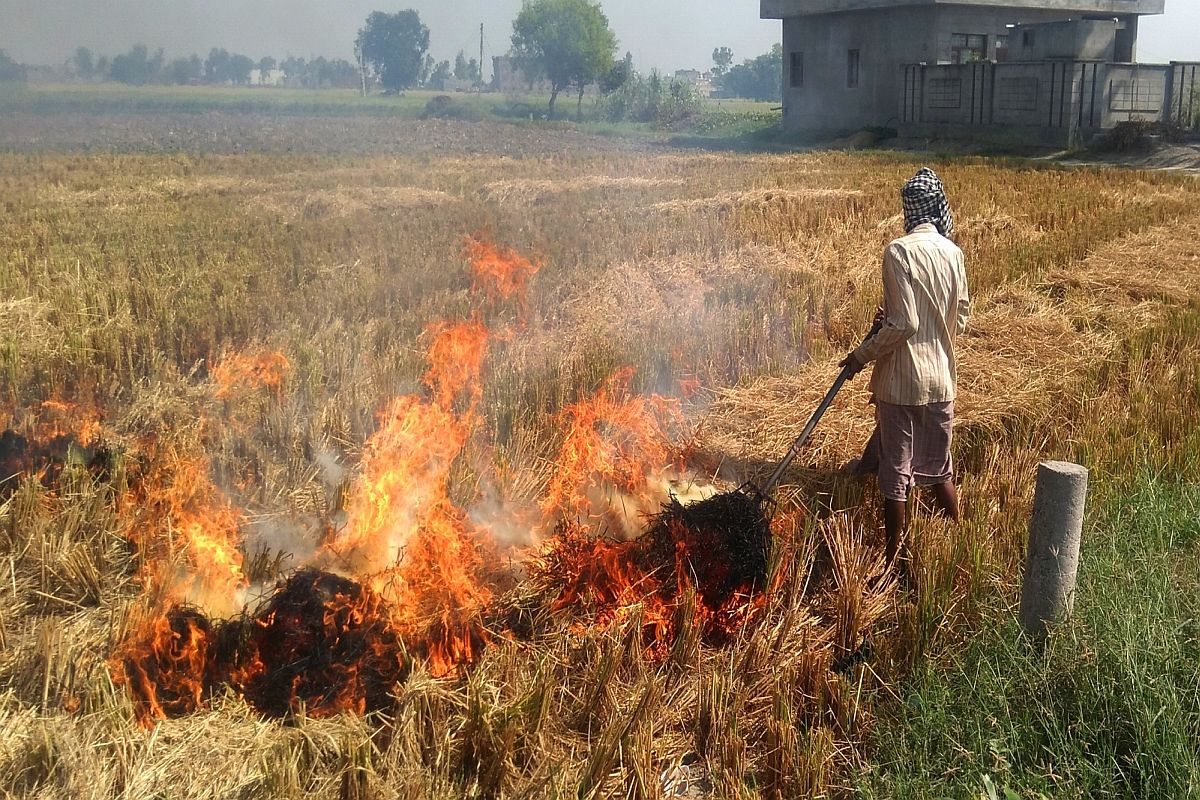Govt committed to enhancing farmers’ incomes: Devesh Chaturvedi
He made these remarks when Australian High Commissioner Philip Green paid a courtesy call on him at Krishi Bhawan in New Delhi on Thursday.
In Punjab, up to 1,551 farm fire incidents were reported on Friday, bringing the season’s total to 12,813

(File Photo: IANS)
While there has been a 50% reduction in farm fires, according to the Punjab Pollution Control Board (PPCB), the air quality has not improved significantly from the same period last year. Compared to 2022, the air quality index (AQI) has gotten worse in some Punjabi cities.
The PPCB data indicates that on November 3, Bathinda had an AQI (air quality index) of 353, which was higher than the AQI of 238 on the same day in 2022, making it the most polluted city in Punjab. The AQI in Ludhiana was 238 today, down from 319 the previous year. Comparatively speaking, Amritsar’s numbers were 238 versus 223 last year, Patiala’s 237 versus 278, and Jalandhar’s 275 versus 215 this year.
The AQI standards classify the air quality as follows: 0–50 is “good,” 51–100 as “satisfactory,” 101–200 as “moderate,” 201-300 as “poor,” and 301–400 as “bad,”401–500 as “severe” and “very poor.” Experts predict that the state of the air would only get worse. The paddy crop reached maturity early in 2022, and most farm fires were reported in mid-October. But this year’s erratic July and August rains severely delayed crop maturity, giving farmers only a short window of time to sow wheat—typically done between November 1 and 15. As a result, there have been more incidents of stubble burning this year.
Advertisement
In Punjab, up to 1,551 farm fire incidents were reported on Friday, bringing the season’s total to 12,813. Sangrur recorded the highest number of single-day incidents at 305. In Ferozepur, 163 in Tarn Taran, 112 in Bathinda, 99 in Patiala, and 76 in Mansa, the count was recorded.
Farmers advise policymakers to concentrate on promoting the use of combine harvesters. At the moment, the combine harvester’s design permits a few inches of paddy to stay in the ground. Due to its high diesel operating costs, the super SMS machine—which totally shreds the residue—is not being used, according to an official.
The farmers have complained that the cooperative society’s farm management equipment was missing its funding and that they were being charged Rs 500 per kanal for stubble management. The authorities have however said that anyone harassing farmers would face harsh consequences. In the meantime, Patiala ADC Anuprita Johal announced the formation of a task force to monitor the unauthorized import of paddy from other states.
Advertisement